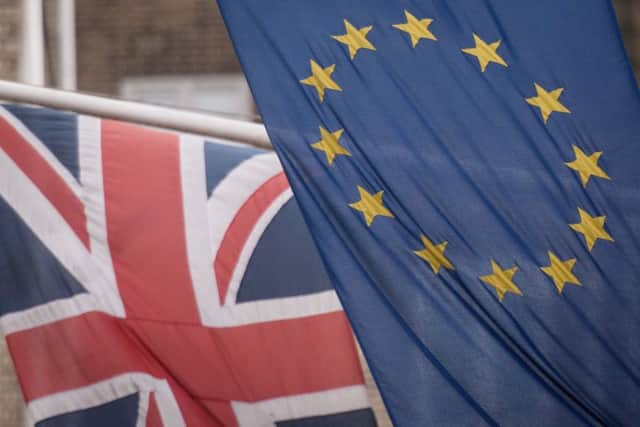David E Johnston: Social, political, economic and cultural links bind us


The SNP leadership claim that Scots voted decisively to stay in the single market and that ‘ignoring’ this shows contempt for Scotland. Yet both campaigns made it perfectly clear that a Leave vote would raise questions over the UK’s ability to continue within the single market for goods and services.
Nationalists have sought to make the single market the only issue facing Scots. It didn’t appear on the ballot paper, they argue, we weren’t asked. But Scotland voted on its future relationship with the EU on the basis of a whole range of issues, none of which appeared on the ballot paper.
Advertisement
Hide AdAdvertisement
Hide AdSupport for the single market may – or may not – have played a crucial part in Scots voters’ decisions. But was it their main concern? I doubt it. Voters came to their decisions as a result of balanced judgment – as they do in any election.
But this doesn’t imply agreement on every aspect of policy. Leave voters surely had their doubts about leaving the single market while even the most enthusiastic of Remainers must have questioned the wisdom of putting our economic future in the hands of a EU weakened further following the European spring elections and Brexit.
The Prime Minister has vowed to consult the devolved administrations in order to ensure that the final deal works for all parts of the United Kingdom. And while the Scottish vote did deliver a resounding endorsement for the Remain side, there can be no veto for Holyrood.
At 67 per cent the turnout for the EU referendum was almost a million fewer than the 85 per cent who voted in the Independence referendum – an indication, perhaps, that the issue isn’t one that Scots feel that strongly about.
This view is supported by the fact that the Brexit result has had little impact on how Scots see our relationship with the UK. Despite SNP threats to hold a second Independence vote, recent polls show Scots remaining firmly opposed to the break-up of the UK.
And little wonder: on the trade issue alone, Scotland exports 63 per cent to the rest of the UK compared with only 16 per cent to the EU. Scotland’s trade with non-EU countries in the rest of the world at 21 per cent is rising, while exports to the stagnant economies of Europe continue to fall. Export trade to the US alone accounted for 15.9 per cent of all Scotland’s exports – nearly as much as to the 28 member states of the European Union.
In 2014 Scots voted to remain within the UK. Their position remains as it was. In June 2016 we voted as part of that Union. Whatever the outcome of the negotiations on the single market, Scotland will be a part of a United Kingdom.
Social, political and cultural links – as well as the overwhelming economic arguments – will ensure that it does. l David E Johnston is an artist. He lives in Laurencekirk, Kincardineshire.